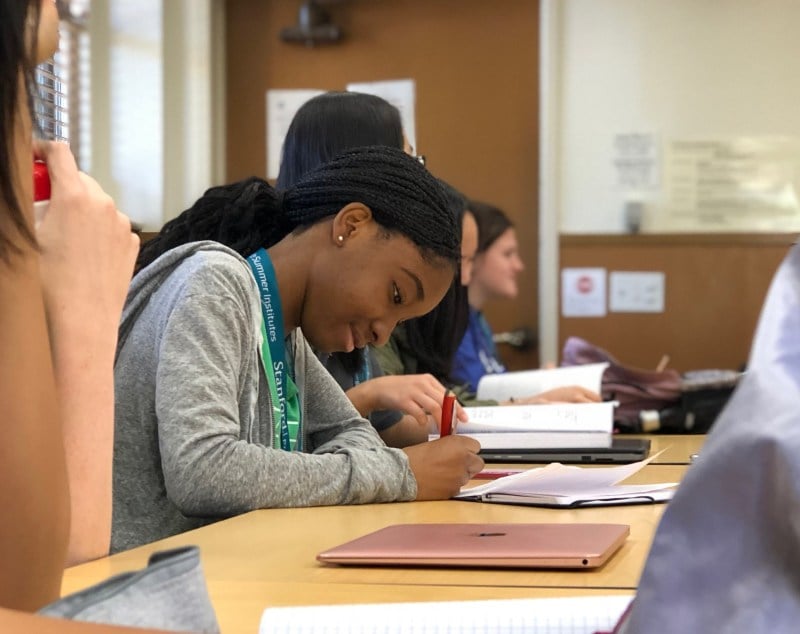Designed to give students from eighth to 11th grade a taste of Stanford residential life and the chance to take a three-week course of their choice, the first session of Stanford Pre-Collegiate Summer (SPCS) Institute commenced on June 25. One of the courses offered by the program’s writing and humanities department is Screenwriting, taught by director, screenwriter and producer William Stribling.
A graduate of the NYU Tisch School of the Arts, Stribling holds degrees in both Film & TV Production and Dramatic Literature, as well as a masters in screenwriting from Chapman University. Several of the films he has directed have gone on to win accolades at various film festivals, such as the Alameda Film Festival and FilmQuest.
This is Stribling’s second year teaching this course at Stanford. He said he was excited when he was first offered the chance to teach this class last summer. Although he had given guest lectures on film and screenwriting at other universities on a few occasions, he had never before taught a course he has personally designed.
“It was something I had always wanted to try out,” Stribling said. “I jumped at the opportunity, and I’m glad I did.”
Stribling was more than happy to teach the class again when he was invited back this year.
“I think I learn more from the students than anything,” Stribling said. “Being surrounded by ten other people who are all creating stories and developing them puts me to work and exercises that part of my brain as a writer.”
The course is suitable for students of all experience levels, as long as they have an interest in film and writing, according to Stribling. Second-time SPCS student Selena Yang took the course because she wanted to step out of her comfort zone.
“Everything is really new to me,” Yang said. “Before this, I had no idea what screenwriting was.”
She is not the only one who feels this way; in fact, none of the students in this year’s class had touched a screenwriting software prior.
Throughout the following weeks, students will learn a multitude of screenwriting skills including script structure, the elements of a compelling story and how to write convincing dialogue.
Stribling believes that in the screenwriting industry it is important to “learn by doing,” so students will practice what they learn by creating character sketches and writing scenes.
Since exchanging criticism and sharing work is an inextricable part of the industry, students will also attend writing workshops where they will provide constructive feedback on each other’s scripts. By the end of the course, students will have written a script for the first act of a feature film that will be performed by professional actors.
“It really is a huge undertaking,” Stribling said. “It’s the kind of thing you usually spend a semester on.”
The final project is the part of the course that both Yang and fellow student Natalie Dicicco are most excited for, although Yang does express some qualms about it.
“It is quite nerve-wracking, imagining people will act out something you created,” Yang said.
Screenwriting students will also go on field trips to the Stanford Theater in Palo Alto and the San Francisco Film Society.
In their class meetings so far, Stribling has introduced the students to the basics of screenwriting, including using a software called Fade In. Their first assignment, which was to write a two-page scene using multiple characters, a phone call, a montage and a car, focused on formatting. On their second class, they dove into the structure of a movie.
Even though only two days have passed, Dicicco feels that she has learned a lot about the process of screenwriting.
“The exercises that we’ve done have been really helpful. I now know how to properly structure something, and the teacher is awesome,” Dicicco said.
Students will continue to build and apply their knowledge in the coming weeks, as they start to flesh out their script ideas, familiarize themselves with formatting and practice writing realistic dialogue.
Contact Shreya Hambir at shreyahambir ‘at’ gmail.com.
